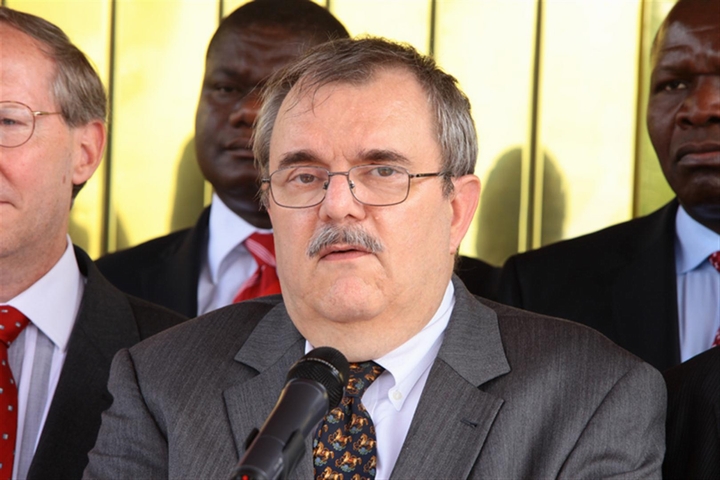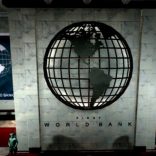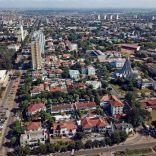India buys 18% of Mozambique exports in 2024 - followed by China, South Africa and Singapore
IMF slams Mozambique government performance and sends it back to try again – Hanlon

File photo / Michel Lazare
Austerity, devaluation, transparency and a forensic audit were demanded by the IMF mission which left on Friday 24 June. In an unusually strong statement issued Friday, the mission was highly critical of recent economic actions and made clear it did not accept what had been presented to it by the government. Any resumption of lending is a long way off.
The statement was issued by staff team head Michel Lazare, and is available on: http://www.imf.org/external/
Government in a statement () said the IMF was told that crisis was caused by drought, floods, and falling export prices, and that the IMF was shown “the economic measures that the Government intends to implement.” Lazare’s response for the IMF was a call “for an urgent and decisive package of policy measures to avoid a further deterioration in economic performance.” This is a polite way of saying the IMF team rejected as totally inadequate what was presented to it during the 10-day mission.
The mission called for “substantial fiscal and monetary tightening” – other words serious austerity – and “exchange rate flexibility” – in other words significant devaluation. Most significantly, the mission demanded a forensic audit: “The mission agreed that recent initiatives to investigate the previously undisclosed debt, through the Attorney General and a Parliamentary Inquiry Commission, are important steps to restore confidence, though it stressed that further measures are needed. In particular, an international and independent audit of the EMATUM, Proindicus, and MAM companies would be needed.”
The government’s failure was underlined by Lazare’s statement that “further progress in the effective implementation of both the corrective macroeconomic measures and the measures aimed at strengthening transparency, improving governance, and ensuring accountability would pave the way for the resumption of program discussions at a later stage.” Thus, this mission is not even the start of discussions on lending, and the statement notes that: “This mission will not result in a Board discussion.”
“Mozambique is facing difficult economic challenges,” Lazare notes. Economic growth this year will be below 4.5%, which is 3% below historic levels. Inflation hit 16% in May. “The metical has depreciated by about 28% since the beginning of the year and international reserves have continued to decline.”
Lazare is highly critical of government performance in the past months. “Fiscal policy in 2015 and the first half of the year has been excessively expansionary, with an increase in net credit to the government that far exceeded program targets. … In addition, the discovery in April of $1.4 billion (10.4% of Mozambique’s GDP) of previously undisclosed loans has pushed the total stock of debt at end-2015 to 86% of GDP. According to our technical assessment, public debt is now likely to have reached a high risk of distress. Against this background, performance under the 2015-2017 Stand-by Credit Facility has been disappointing, with most assessment and performance criteria or indicative targets being missed at end-December 2015 and end-March 2016.”
Comment: “The causes of the problems we have today … are economic, both internationally as well as nationally, including droughts and floods. I think we can stand up firmly to address these challenges,” said former President Armando Guebuza Saturday. “Our authorities are concerned about the situation and therefore we should confidently wait for what they will decide.” (AIM Pt 25 June) This is similar to the government’s submission to the IMF, which was simply to hope that “something will turn up”, a strategy we pointed to in a comment two weeks ago:
By: Joseph Hanlom












Leave a Reply
Be the First to Comment!
You must be logged in to post a comment.
You must be logged in to post a comment.